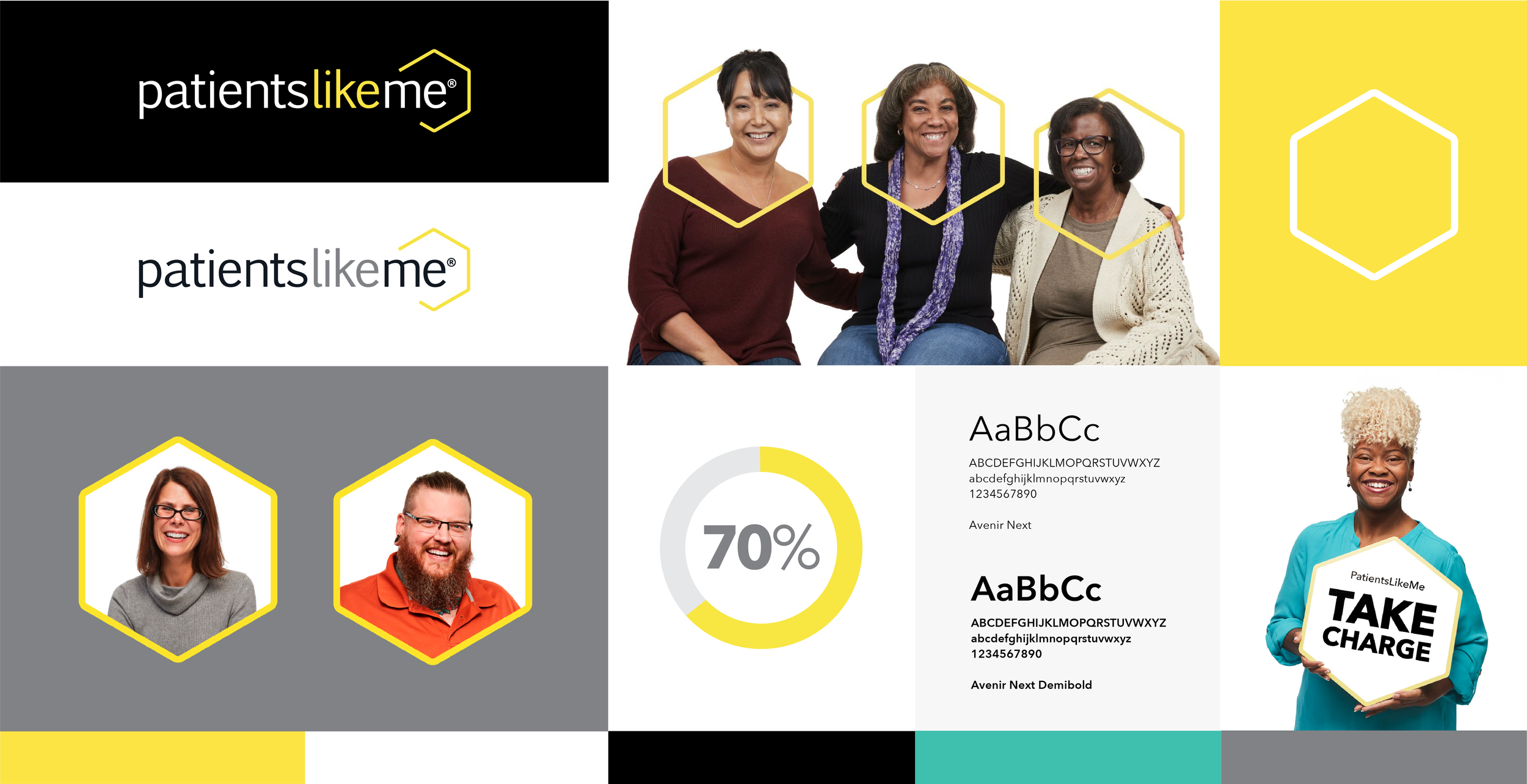
What is Patients Like Me? 0
What is Patients Like Me all about?
Go to Patients Like Me to discover a new online forum where over 600,000 patients with 2,800+ different health conditions share their medical history, symptoms, medications, and side effects. All in the hope that others will compare and learn about their particular condition or treatment, so they make better choices. As patients, we do not have access to see the true independent clinical research about medications and treatments. Now you can dig deeper into that important information. How many people took a certain brand-name or generic medication and found it useless? Were the side effects of a new drug too risky to deal with? What other options do you have? You just may find the answers there.
Is that information going back to the drug manufacturers and pharmaceutical companies to know that some medications are good, bad or ugly?
YES! It did not start out that way. It really was just a forum for patients. But it grew so exponentially big, that it's become even more powerful than just a consumer/patient forum.
NOW the big pharmaceutical companies are actually taking back the statistical information from the website and using it to re-strategize their own medical research and drug development! This is a HUGE breakthrough for patients!
Is the Food and Drug Administration paying attention to this online site as well?
YES! Since 2016, the FDA is benefitting from direct patient-reported data and gaining powerful insights to drug efficacy and safety! This is so exciting for everyone. It's a win-win partnership for all.
As of 2015, over 110,000 adverse drug reactions were reported on that site alone. Because the FDA has always struggled with a huge gap in adverse drug reporting from doctors and patients, now this online forum is a safe place for patients to share their reactions. The FDA has now taken this site seriously as a place to survey starting points on market reactions.
Has there been any case where PatientsLikeMe.com helped get a drug recalled or refuted?
YES! Because of the data generated about a lithium carbonate treatment for amyotrophic lateral sclerosis (ALS) the same disease that Professor Stephen Hawking died from in March 2018, they were able to refute results from an actual clinical trial!
Again...we are here happy dancing at this news that a patient-to-patient network was about to evaluate and provide more realistic results than a clinical trial! We think PatientsLikeMe.com should qualify for a courtesy Nobel Peace Prize in Medicine for helping redistribute the power back to patients and their voices, rather than relying only on the frequently skewed clinical trials that have vested interests in more profitable results to benefit drug manufacturers.
We hope that this platform stays true to their original intent and does not sell out to the proverbial devil and the deep pockets that feeds the system. As of the writing of this book, we have not found any hint of that occurring. However, whenever data is shared, a higher level of vigilance is needed to make sure that power is not hijacked.
Why didn't anyone think of this long ago?
Sometimes it takes a devastating heartbreak to drive a question into a movement into a revolution. In this case, it was two brothers, James and Benjamin Heywood, who were inspired to reach out and find more effective treatment for the ALS disease that their brother was diagnosed with at 29 years old. The two brothers just needed a resource to compare notes with other ALS patients, so they could decide what treatment option would be better. There were no other resources. That's how PatientsLikeMe.com was born.
In just one decade since their brother's death, PatientsLikeMe.com has grown to be a force to reckon with as a robust and legitimate resource information platform. We congratulate they Heywood family and the team at Patients Like Me for their noble mission and their accomplishments already made to the medical community of patients.
How can PatientsLikeMe.com benefit the eczema/psoriasis and other skin condition patients?
If more skin condition patients register online and deposit their health journeys and detailed topical steroid medication experiences, then the statistical database of pros and cons will grow. Once more data is accumulated, the public awareness will benefit, as well as medical practitioners to know if their protocols are working.
Has anyone reported Topical Steroid Side Effects or Red Skin Syndrome on PatientsLikeMe.com?
YES, YES, YES! As of this book publication date, there have been 68 patients that reported their own experiences with each topical steroid they used. In fact, the condition is listed as Red Skin Syndrome/Topical Steroid Withdrawal. There you have it folks! Where many medical practitioners have not acknowledged this condition, there is now an independent platform that does right there, and it is open for everyone to review. This is just a starting point to provide a safe place to deposit the long history of topical steroids and efficacy and potential side effects.
Is there any way to create a poll or another type of survey within Patients Like Me?
YES! YES! YES! They have a large research division within their platform and can set up an independent survey by contacting the folks at Patients Like Me RESEARCH tab on their website. They can guide and initiate how they can help to administer this type of survey. There are academic ways to do this or with an independent group to get this funded by grants as well. This is where it all comes together. Dermatology students also have credence to work with Patients Like Me and their data to help with publishing papers and research activity.
Is it really anonymous?
A patient or caretaker can create an anonymous profile on any computer and set up their health history and medications list(s). They can detail their experiences with each medication or treatment protocol. It is a brilliant concept to help share valuable information that would otherwise not be available to patients.If you've read this book thus far, you must know someone that has dealt with topical steroids on some level. Please forward this information to them and encourage them to share their experiences on Patients Like Me.
Can we really make a difference just by inputting our individual health issues on a website?
Thank you for asking this magnificent question! That one question may be the key to saving humanity...no, seriously! There is a new platform online for patients and caretakers that could be the missing piece to the puzzle. It was created by two brothers who lost their other brother to Amyotrophic Lateral Sclerosis (ALS.) When they explored the medical options available for treatment and what, if any, side effects they had, they found a huge void and lack of available information. Just like topical steroids! They needed to compare medications their brother was given and how it fared with others that were a few stages ahead. What was the statistical average of survival and what were the side effects? The brothers intuitively knew that relying on the original clinical test of the pharmaceutical companies was not wise. After all, those companies had a vested interest in swaying information in their favor and, quite possibly, were not going to help them in trying to save their brother.
So they started a website called www.PatientsLikeMe.com. They created an online system where anyone - patients or caretakers - can share their true experiences with each drug, medical protocol and side effects with honest feedback fromothers that went through the same ordeals. WHAT A BRILLIANT CONCEPT, right? Here at ELAJ headquarters, we constantly nag, nag, nag for anyone and everyone with any disease or medical ailment to register, even if anonymously from a random computer at a library or hospital to just DO IT! For the sake of humanity, DO IT! For the sake of clearing our collective conscience to help others in need, DO IT!
Imagine if 70% of patients with eczema or psoriasis input their information into that database? I can imagine the shivers of the pharmaceutical executives all the way through my computer keyboard as I'm writing this. How else can we, patients and caretakers of those that are ill, gain control back from the dominant power of Big Pharma? This could be the ONLY way to statistically get the data and leverage back in our favor.
In light of the latest concern about opioid drug addiction and abuse, imagine people sharing their stories. Cancer treatments and the recurrence ratios and hearing from people in similar cases describe their actual health journeys? This is why I think this could be one of the keys to saving humanity. It has become a beacon of light for so many people.


The Misuse of Topical Steroids in India 0
Why was India experiencing a pandemic of topical steroid abuse?
This was due to a cultural obsession with lightening dark skin. This is a sad, social phenomenon that has to do with racial classification. The desire for lighter skin tones still has seriously dangerous and detrimental psychological ramifications among many Eastern, Mideastern and Asian cultures, not just India. Actors, models, singers, and the general public still deal with economic discrimination as well as social preferences in marriage proposals to lighter skin tones.
There were also other factors for topical steroid misuse resulting from public ignorance, lack of information and medical negligence. Pharmacies were disregarding the manufacturer warnings while profitable sales increased each year. The market was saturated with prescriptions for steroid cocktails of antibiotics and anti-fungals that would be re-filled and shared among family and friends without any direct supervision from dermatologists. Another factor was that there had been a shortage of dermatologists in ratio to the country's population of over 1.35 billion. Most of the dermatologists are located in urban municipalities completely denying access to so many in the outlying populations.
How did the consumers use the steroids to lighten their skin?
They mix topical steroid cremes that are known to thin skin with a bleach creme to lighten darker skin tones. That was the onset of an epidemic level of topical steroid addiction case studies. Since 2008, Dr. Koushik Lahiri and other doctors started seeing more and more patients that tried to alter a cosmetic issue, but unknowingly became far more injurious to their skin and endocrine systems with far-reaching consequences. It was not an eczema-induced prescription that caused the topical steroid addiction, but rather a cosmetic craze for lighter skin tone that triggered a topical steroid addiction epidemic!
Are topical steroids banned in India?
 One of the first heroic voices in India lobbying for change was the world-renown dermatologist, Dr. Koushik Lahiri. Since 2008 he has been a trailblazer documenting the detrimental history of corticosteroid abuse. Loaded with case studies, he pleaded to the Ministry of Health and Parliamentary House in India. His personal mission was to rescind the law and ban OTC (over-the-counter) sales of any topical steroid without a prescription. In August of 2016, he finally succeeded with his original proposal to the Indian Association of Dermatologists called: Stop OTC Sale of Topical Corticosteroids without Prescription. He has since been recognized by the International Society of Dermatology for his work on many fronts to protect public health and skin care and educating and encouraging international medical professionals to become more sensitive to the conditions.
One of the first heroic voices in India lobbying for change was the world-renown dermatologist, Dr. Koushik Lahiri. Since 2008 he has been a trailblazer documenting the detrimental history of corticosteroid abuse. Loaded with case studies, he pleaded to the Ministry of Health and Parliamentary House in India. His personal mission was to rescind the law and ban OTC (over-the-counter) sales of any topical steroid without a prescription. In August of 2016, he finally succeeded with his original proposal to the Indian Association of Dermatologists called: Stop OTC Sale of Topical Corticosteroids without Prescription. He has since been recognized by the International Society of Dermatology for his work on many fronts to protect public health and skin care and educating and encouraging international medical professionals to become more sensitive to the conditions.
He also founded a countrywide initiative task force to study and publish the first multi-authored international compendium on the topic: A Treatise on Topical Corticosteroids in Dermatology: Use, Misuse and Abuse.
This medical practitioner's reference tool aims: "To fill up the lacuna and to contribute significantly to the dissemination of knowledge about the indication/contraindication, mechanism of action, ethical use, side-effects and various other facets related to topical corticosteroid. Topical corticosteroids (TC) have greatly enhanced dermatologists' ability to effectively treat several difficult dermatoses. The available range of formulations and potencies allows them to flexibly treat all groups of patients, different phases of disease, and different anatomic sites. Improper/incomplete knowledge about topical corticosteroids' mechanism of action, indications, classifications, and contraindications has produced a rapid rise in the incidence of improper use of these drugs, which could potentially bring disrepute to this entire group of amazing drugs.
Responsibility for disseminating proper knowledge regarding when, where, and how to use TC both to internists and patients primarily rests with dermatologists. In this regard, the benefits of rational and ethical use and the potential harm of overuse and misuse for non-medical, especially cosmetic purposes, should be clearly conveyed before prescribing TC."
Will hydrocortisone ever be taken off the over- the-counter market in the United States?
That is highly unlikely due to the powerful wing lobby of Big Pharma. What we can do is educate ourselves, our loved ones, and report Adverse Drug Reactions to the FDA and register at www.PatientsLikeMe.com to become a better informed self-patient advocate! The doctors in India have taken great strides in causing ripple effects in the east. We, in the west, can learn if we choose to see the parallel universe of topical steroid addiction potential. Albeit, the original intentions of using corticosteroids were quite different, the results and consequences have the same endocrine disruption. This provides more valuable data that can be shared to document the clinical effects of addiction/withdrawal.
For more information on Dr. Lahiri .
Facebook page: www.facebook.com/NoMoreSteroidAbuse
Lahiri K, Coondoo A. Topical steroid damaged/dependent face
(TSDF): An entity of cutaneous pharmacodependence. Indian J Dermatol [serial online] 2016 [cited 2018 Nov 9];61:265-72. Available from: http://www.e-ijd.org/text.asp? 2016/61/3/265/182417
Coondoo A., Lahiri K. (2018) Topical Steroid Damaged/ Dependent Face (TSDF). In: Lahiri K. (eds) A Treatise on Topical Corticosteroids in Dermatology. Springer, Singapore://link.springer.com/chapter/10.1007%2F978-981-10-4609-4_13




